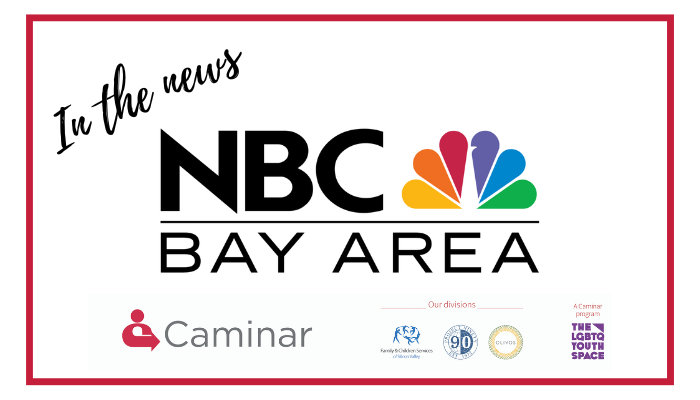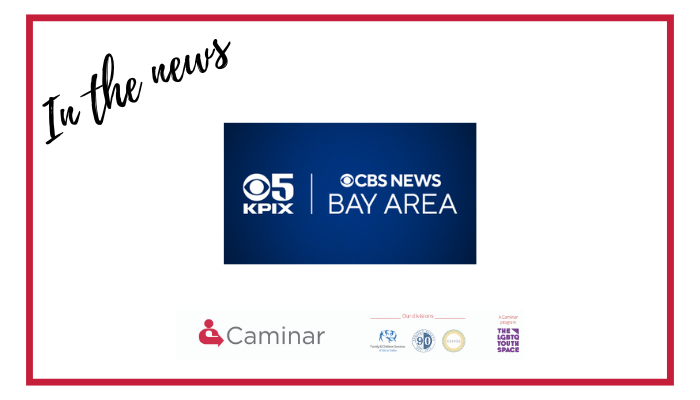With special thanks to Jason Kaefer, Case Manager in Caminar’s New Ventures program in our San Mateo Region, for authoring this post.
We're all trying to catch up! The world accelerated faster than we could prepare for, and now, in this high-performance world, our mental health is as vulnerable as ever. In this environment, we often fail to see what affects our mental health, including certain conveniences like social media that might give us a feeling of connection, are actually problematic.
Given the vast number of people on social media today, anyone could be susceptible to this silent threat. Take a minute and see if this applies to you.
1. A Link to Unhappiness
Social media outlets like Facebook aren't going away, as they are a cornerstone in our society. But a 2013 study highlighted that Facebook undermines real connections among adults. This issue has led to an increased feeling of isolation. Now, stop and think about a person in isolation already. You add to this a network that is based on superficial connection, that inadvertently endorses isolation, neglecting mental health, and the damage could be long-lasting.
In fact, according to a 2017 study, social media use for a minority of individuals is associated with a number of psychological problems, including anxiety, depression, loneliness, attention deficit, and hyperactivity. Because social media is most frequently accessed via smartphones, their usage is intimately intertwined and their mobile nature contributes to excessive checking habits, which often derives from what is commonly labeled as the fear of missing out.
2. It's Addicting
According to Psychology Today, serious addiction to social media is rare. However, any overuse can affect your personal life. These behaviors may include checking your smartphone while out with friends, checking your phone while driving, or snubbing your loved one by checking your phone rather than being present.
There is a feeling of satisfaction when you receive a notification on social media. This feeling triggers your brain to respond in a way similar to drugs and alcohol interaction. Solutions to this are referred to as digital detox, and the problem itself can be assessed and identified by asking the following questions
Do you feel urges to use social media more and more?
Do you use social media to forget about personal problems?
Do you often try to reduce your use of social media without success?
Do you become restless or troubled if you are unable to use social media?
Do you use social media so much that it has had a negative impact on your job or studies?
3. Comparing Yourself
We will always compare ourselves to one another. In many ways, this may encourage growth. But comparing to something aesthetically enhanced such as the human body may lead to feelings of low self-worth.
Having an unattainable goal, whether it be an absurd yearly income or a body type flaunted through a fitness campaign, and moreover, being presented daily with images promoting these goals may progress to a serious lack of self-esteem.
Check out this article that refers to "Facebook envy." I think the term speaks for itself. What is the solution? The article states if plainly: Becoming more conscious of the amount of time you spend scrolling through other people’s online profiles could help you focus more on yourself and boost your self-confidence.
4. Poor Sleep
One aspect of your health you shouldn't neglect is sleep. The quality of your sleep will determine your productivity, happiness, and overall well being. Social media not only affects the quality of sleep but keeps your brain on high alert due to the above-mentioned factors. In fact, it’s recommended you shut off all electronics one hour before bed to avoid the brain being wound up. “Plus, the light from our mobile device just inches from our face can suppress the release of melatonin, a hormone that helps us feel tired.”
Having routinely poor sleep can lead to an increase in psychiatric symptoms. An article put out by Harvard Health Publishing puts it bluntly: “Insomnia and other sleep problems also increase the risk of developing depression. A longitudinal study of about 1,000 adults ages 21 to 30 enrolled in a Michigan health maintenance organization found that, compared with normal sleepers, those who reported a history of insomnia during an interview in 1989 were four times as likely to develop major depression by the time of a second interview three years later.”
Mental health is susceptible to unpredictable influences, and social media is one of them. But with this awareness, you can take action in reducing your social media usage. You may even use the above questionnaire to evaluate the effect social media has on you. Awareness of these issues can lead you and/or family members to a better life balance.








